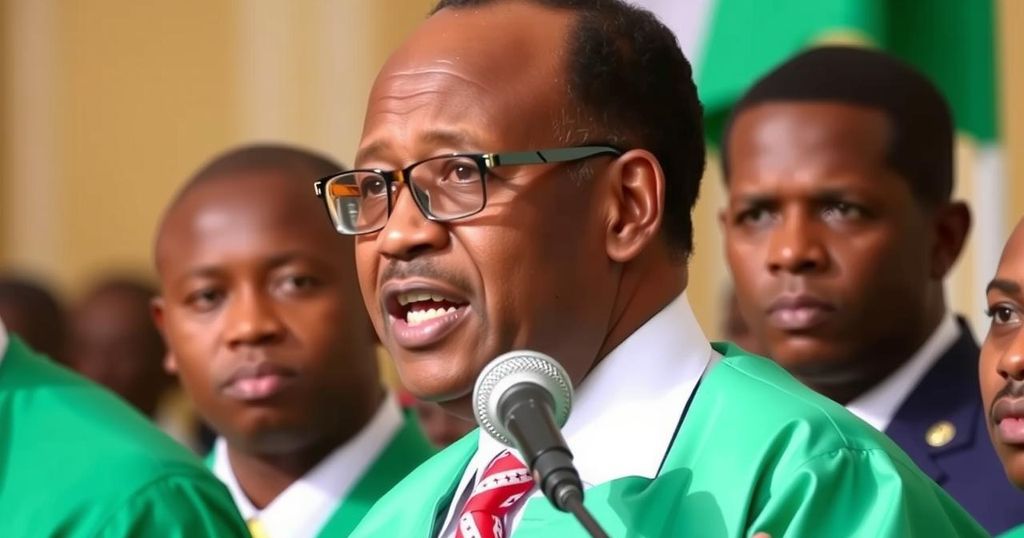Chad’s Ruling Party Dominates Parliamentary Elections Amid Opposition Boycott

Chad’s ruling Patriotic Salvation Movement secured a majority in the parliamentary elections, winning 124 out of 188 seats amid a boycott from main opposition parties. The elections, deemed critical for transitioning to democracy, saw a 51.5 percent voter turnout, which the opposition labeled a sham. President Mahamat Idriss Déby emphasized that the election would facilitate much-needed decentralization of power, despite ongoing concerns regarding election legitimacy and security issues in the region.
Chad’s ruling Patriotic Salvation Movement (MPS) has achieved a dominant victory in the recent parliamentary elections, capturing 124 out of 188 seats, as revealed by the provisional results released by the electoral commission. This election, the first in over a decade, was staged alongside regional and municipal elections. Despite a 51.5 percent voter turnout, the main opposition parties, including the Transformers party, boycotted the polls, alleging that the election was a mere charade intended to bolster President Mahamat Idriss Déby’s authority, which has been contested after he ascended to power following his father’s death in 2021. The president contended that the elections would facilitate the long-desired decentralization of power across the nation.
Chad has been undergoing significant political changes since Mahamat Idriss Déby became the military ruler after the passing of his father, Idriss Déby Itno, a president who had led the country for 30 years. The recent parliamentary elections are seen as a critical step in the transition to democracy after years of military rule. However, this progress has been shadowed by widespread skepticism regarding the legitimacy of the electoral process, particularly given the boycott from over ten opposition parties, which has raised questions about the validity of the results. The political climate remains tense due to ongoing security challenges, including threats from Boko Haram and fraying relations with France.
In conclusion, the ruling Patriotic Salvation Movement’s sweeping victory in the parliamentary elections marks a pivotal moment for Chad’s political landscape. Nonetheless, the boycott by major opposition parties and the criticisms regarding the election’s credibility highlight significant challenges ahead for the region as it navigates security threats and strives for a more representative governance system. The calls for decentralization may further complicate the delicate balance of power in the nation.
Original Source: www.rfi.fr







